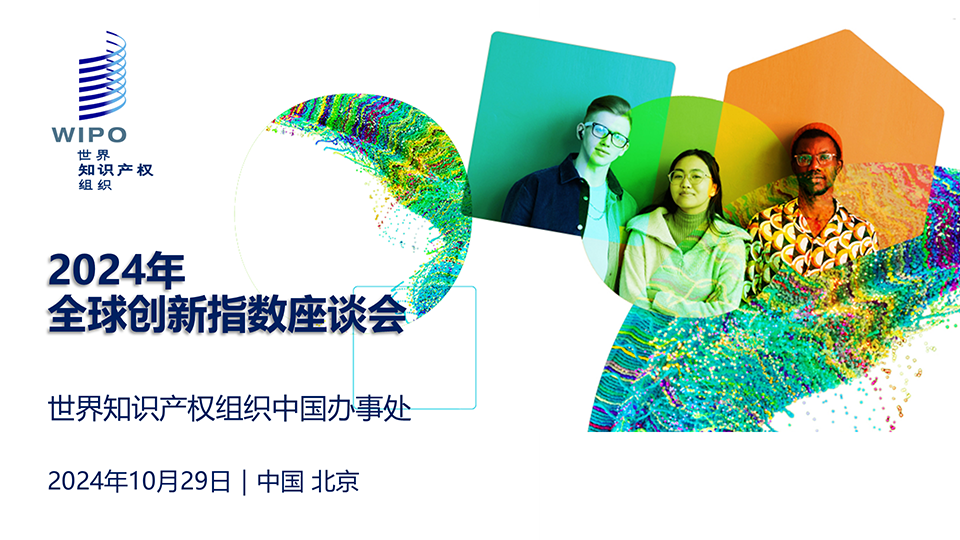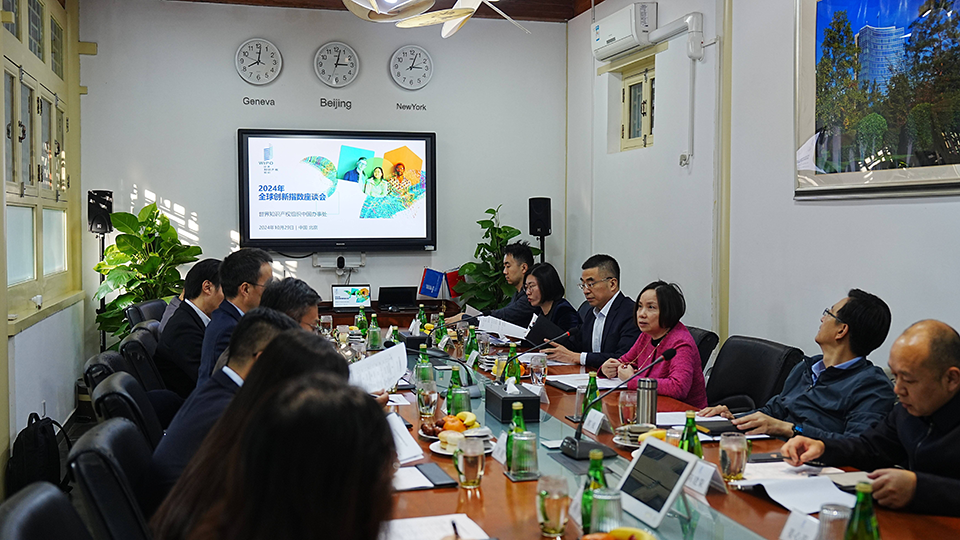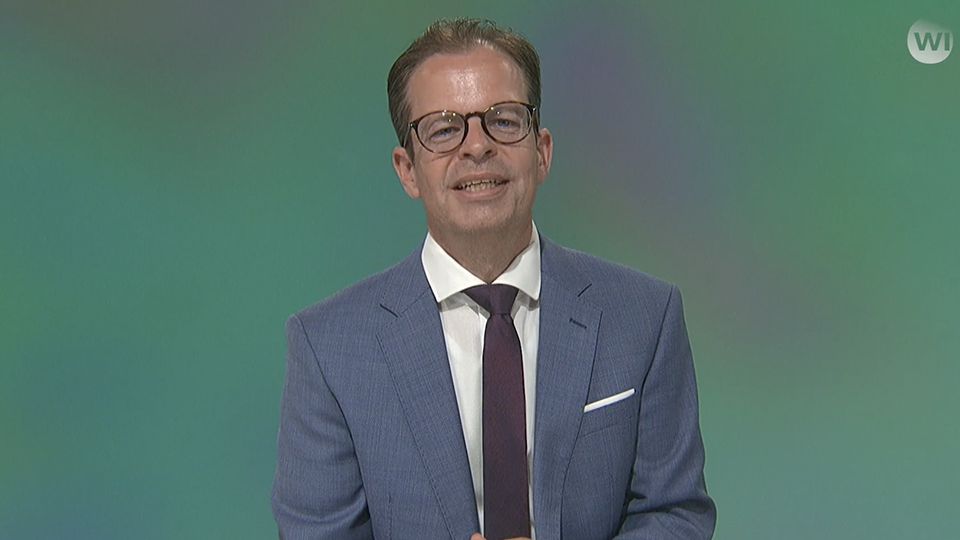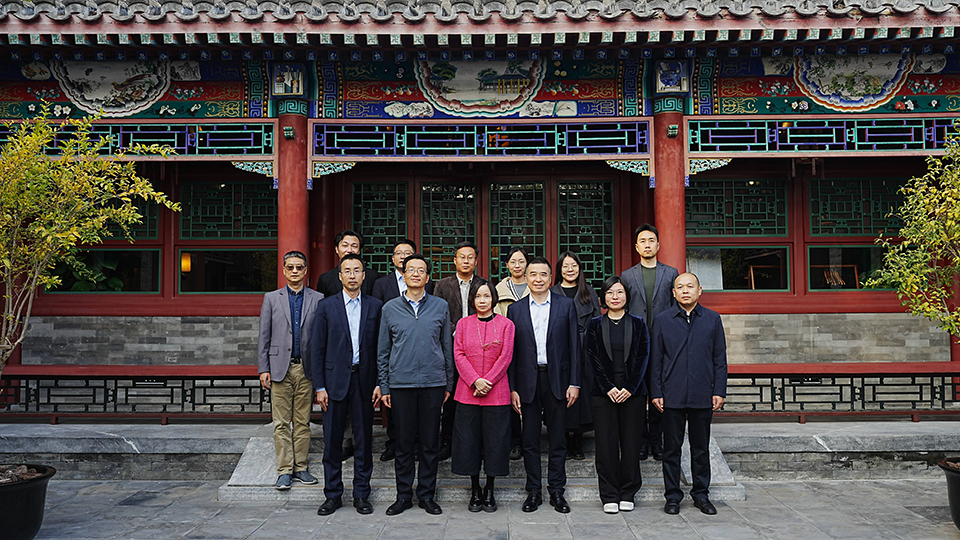WIPO China: Roundtable on the 2024 Global Innovation Index
30 октября 2024 г.
Beijing, October 29, 2024 - According to the 2024 Global Innovation Index (GII) released by the World Intellectual Property Organization (WIPO) in September, China has demonstrated exceptional performance, rising to the 11th place in the global ranking. China also maintains its leading position for the second consecutive year with 26 science and technology clusters among the global top 100. To explore the significance of the GII 2024 for China's innovation development, WIPO Office in China (WOC) held a roundtable in Beijing, bringing together representatives from government departments, universities and enterprises to interpret key findings of the GII 2024 and discuss how to further deepen cooperation to promote intellectual property (IP) protection and technological innovation.

Ms. LIU Hua, Director of WOC, noted that the GII is an internationally recognized benchmark for global innovation, and China's performance has gained international recognition. The global innovation landscape is undergoing profound changes, with the two innovative waves deeply converging. Facing new opportunities and challenges in innovation development, WIPO will further strengthen international cooperation and deepen innovation exchanges, and China will play a critical role in the process.

In his video speech, Mr. Sacha Wunsch-Vincent, co-editor of GII, analyzed the current global macroeconomic environment and innovation landscape. There is a decline in patent filings, a reduction in scientific publications, and a scaling back of venture capital investments over the past year, but the innovation progress has not stalled. He noted that China remains the only developing economy ranked in the top 30 of the GII, with outstanding performance in various innovation indicators. He particularly commended China's achievements in science and technology cluster development, maintaining its position as the country with the most clusters for the second consecutive year.

Voice of Participants
Mr. GUO Rong, Vice President of the Chinese Academy of Science and Technology for Development (CASTED), stated that since its launch in 2007, the GII has played a crucial role in guiding China's policies for building an innovative nation. He expressed that the CASTED is willing to deepen cooperation with WIPO in the innovation index, especially the data collection for intangible assets, and jointly establish a more comprehensive innovation evaluation system.
Mr. CHEN Wei, Second-Level Inspector of Beijing Municipal Intellectual Property Office, presented the latest developments in Beijing's IP work. He noted that Beijing's innovation momentum has gained international recognition, ranking the 3rd in the global science and technology clusters. He emphasized that Beijing is pursuing development through "marketization, rule of law, and internationalization", continuously optimizing the IP protection environment, strengthening the cultivation of innovation entities, and promoting high-quality development of intellectual property.
Ms. YANG Wenjing from the International Cooperation Department of China National Intellectual Property Administration (CNIPA) pointed out that the GII serves as a crucial reference for measuring national innovation capacity. China's continuous rise in the ranking in recent years demonstrates the significant enhancement of its innovation capabilities. She noted that CNIPA has issued top design policy for IP development including the "Outline for Building an IP Powerhouse (2021-2035)", and will continue to deepen IP reforms and enhance IP governance capabilities.
Mr. CHEN Jianrong from the Beijing Municipal Science and Technology Commission and Administrative Commission Zhongguancun Science Park stated that Beijing's leadership attaches great importance to the GII and continues to refine innovation policies based on its insights. He introduced Beijing's progress in building an international science and technology innovation center, which has formed an innovation development pattern centered on the "three science cities and one technological development area". He expressed the willingness to strengthen cooperation with WIPO to further enhance Beijing's innovation capabilities.
Prof. CUI Guobin, Director of the Intellectual Property Law Research Center at Tsinghua University Law School, analyzed the GII evaluation system from an academic perspective and suggested strengthening research on the methodology behind the index. He also called for enhanced international IP exchange and cooperation, particularly in cultivating IP talents for developing countries.
Mr. YAN Xin, Director of Beijing Branch of Intellectual Property Department at Huawei Technologies Co., Ltd., shared Huawei's IP practice experience. He emphasized that enterprises should actively participate in the building of global IP ecosystem and suggested strengthening international judicial exchanges to promote dialogue and interaction among judges and lawyers from different countries.
Mr. LIU Chao, Legal Director of Xiaomi Group, introduced Xiaomi's innovation development strategy. Among the global leaders in PCT filing, Xiaomi consistently adheres to innovation-driven development, with R&D staff accounting for more than half of its employees. In the future, Xiaomi will continue to increase investment in areas such as intelligent manufacturing, intelligent electric vehicles, operating systems, and artificial intelligence.
Mr. SHI Yilun, Chairman and CEO of Beijing Healinno Medical Technology Co., Ltd., shared from the perspective of innovative SMEs on how to leverage IP tools to support innovation and development. He called for strengthened promotion of IP for SMEs to help them understand and utilize WIPO’s global IP systems.
